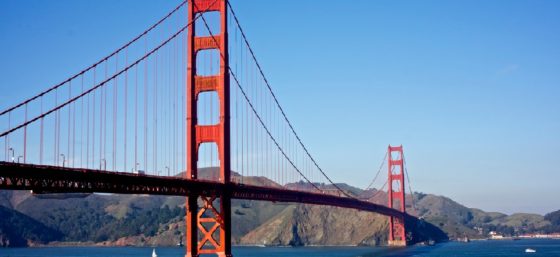
A common mistake among professional creatives and amateur is understanding the scope of copyright protection, In the U.S., when you have a copyright, you have protection for your original expression, not the ideas contained within your work.
What Does Copyright Protect
Copyright applies when you have an “original work of authorship” that is “fixed in a tangible medium.” When you have a copyright, you can prevent others from using or claiming your work without permission, but it doesn’t give you a monopoly over the ideas contained within a work.
The image above is a photograph of the Golden Gate Bridge by Julian Fong. By taking this photo, he has the copyright in the image; however, he can’t stop others from taking picture of the bridge. If I went to San Francisco and determined where he was standing, I could take a photo that is nearly identical to his, but that is not a violation of his copyright. He can only stop me from claiming his work as my own or using his work without his permission. He can’t stop me from creating my own picture. His rights only extend to his exact expression, not the idea of capturing an image of this bridge on a sunny day.
The same rules that apply to images also apply to written material. This is why multiple people can write about the same topic and even express similar sentiments without risk of violating the other’s copyright rights. As long as one writer is not deliberating copying the other’s work word-for-word and claiming it as their own, it’s possible for two people to create similar works without violating the other’s rights. It is permissible under the concept of fair use to quote another writer and provide your own thoughts and others’ perspectives about the issue.
What Is Not Protected
Copyright only protects original expression, it does not protect facts, ideas, methods, titles, names, short phrases, or recipes. Copyright can protect and original arrangement of facts, but not when it’s an unoriginal arrangement. That’s why a cookbook may be protected by copyright (original arrangement of recipes and images) but a phonebook is not.
I regularly receive questions from people about what is the scope of copyright protection and whether contributing to a project (such as being the subject of a photo) gives them rights in the resulting product. Copyright, like many areas of law, has few definite answers. Each situation must be evaluated based on its merits.
If you want to talk with me about copyright law and protecting your rights, you can contact me directly or connect with me on Twitter, Facebook, YouTube, or LinkedIn. You can also get access to more exclusive content, entrepreneurial tips, and rants that are available only to people on my mailing list, by subscribing here.